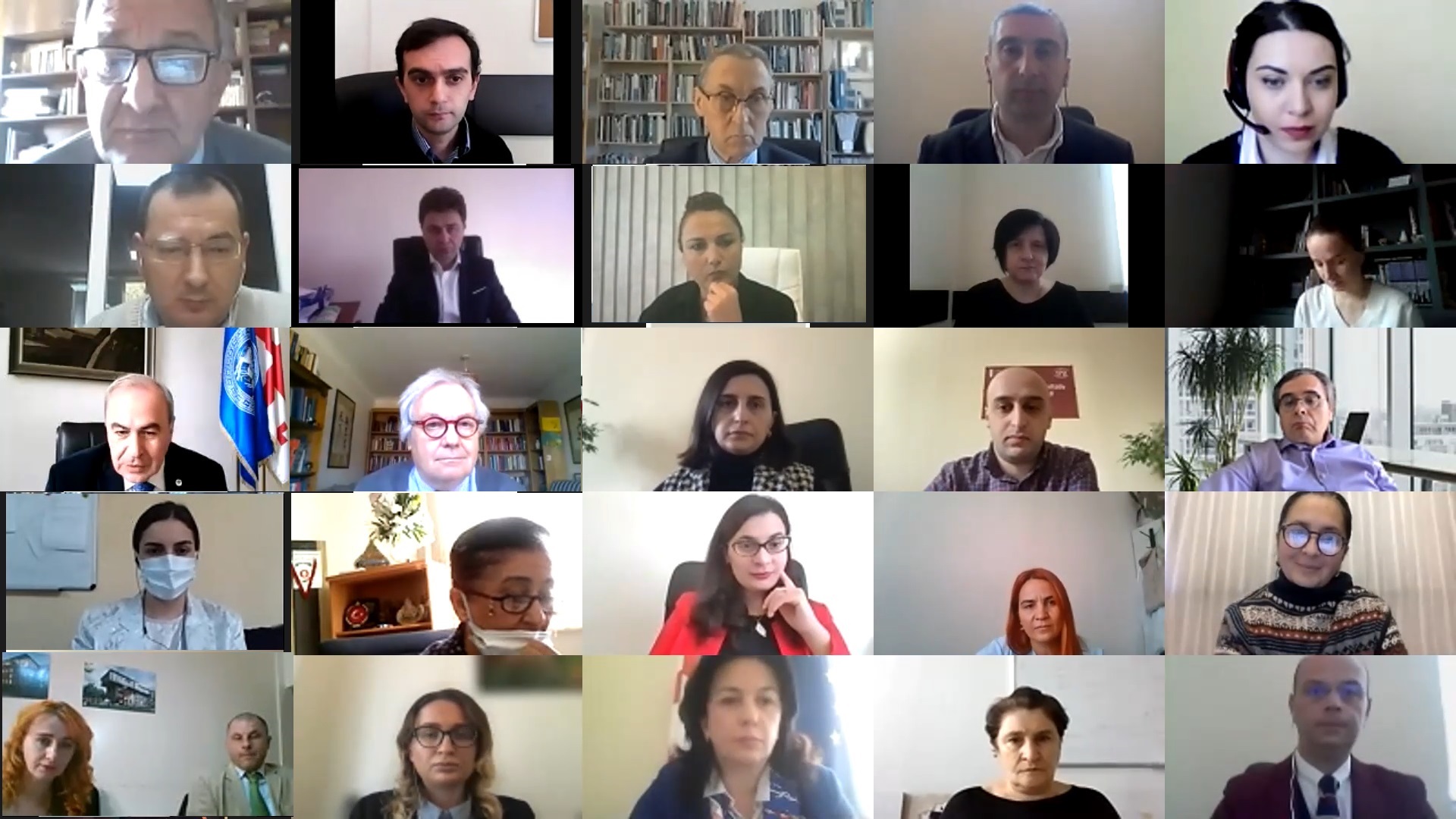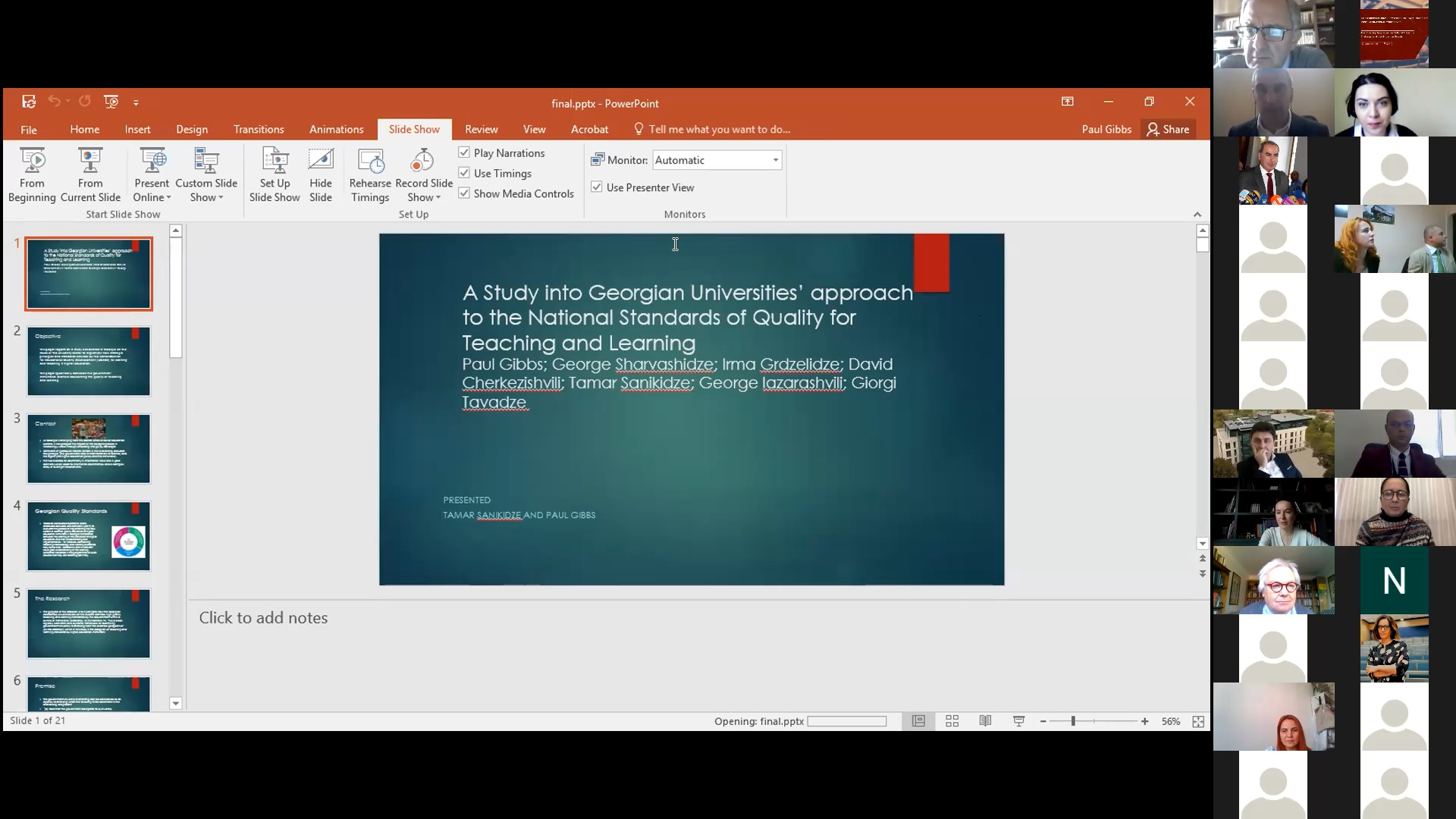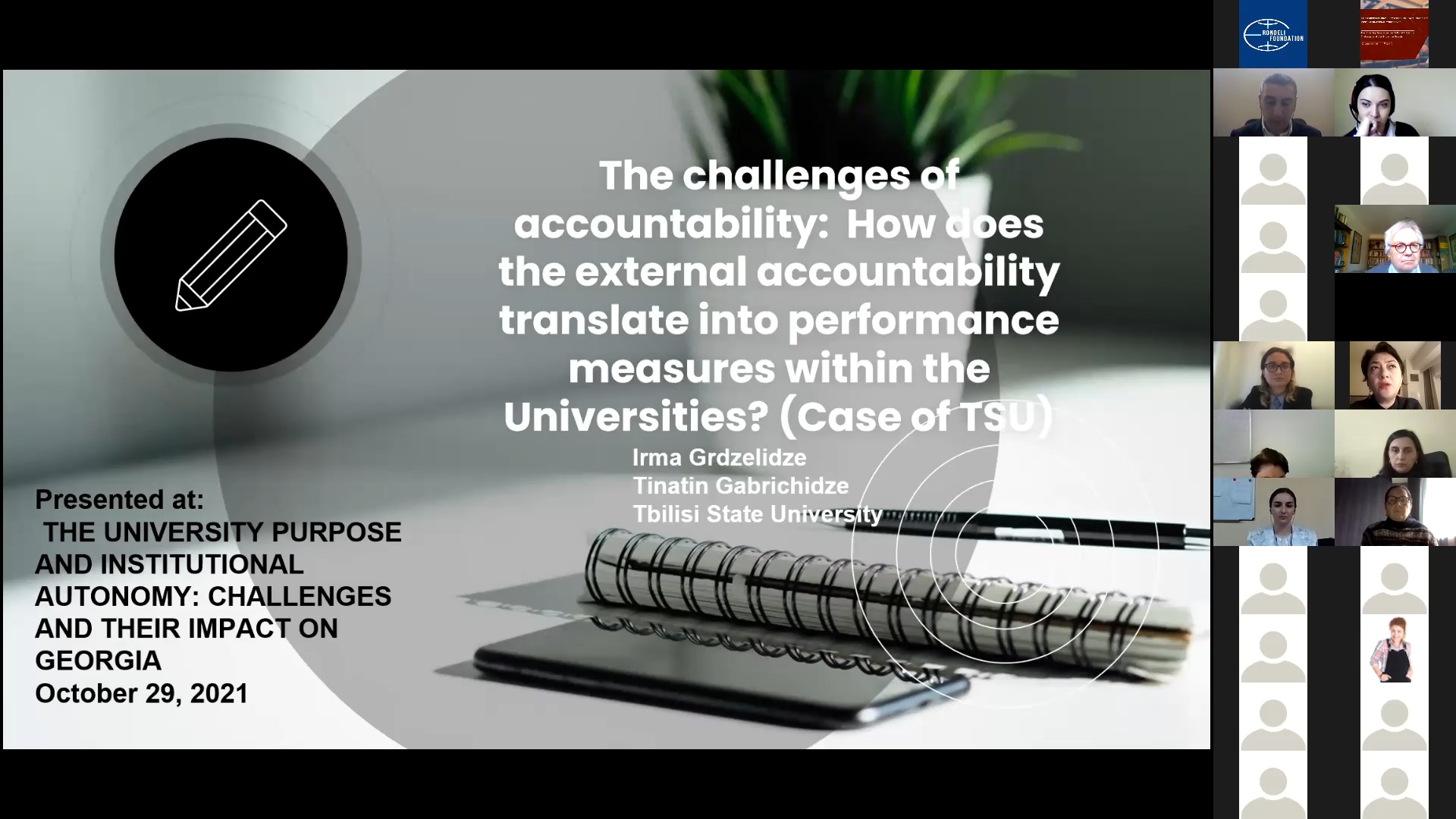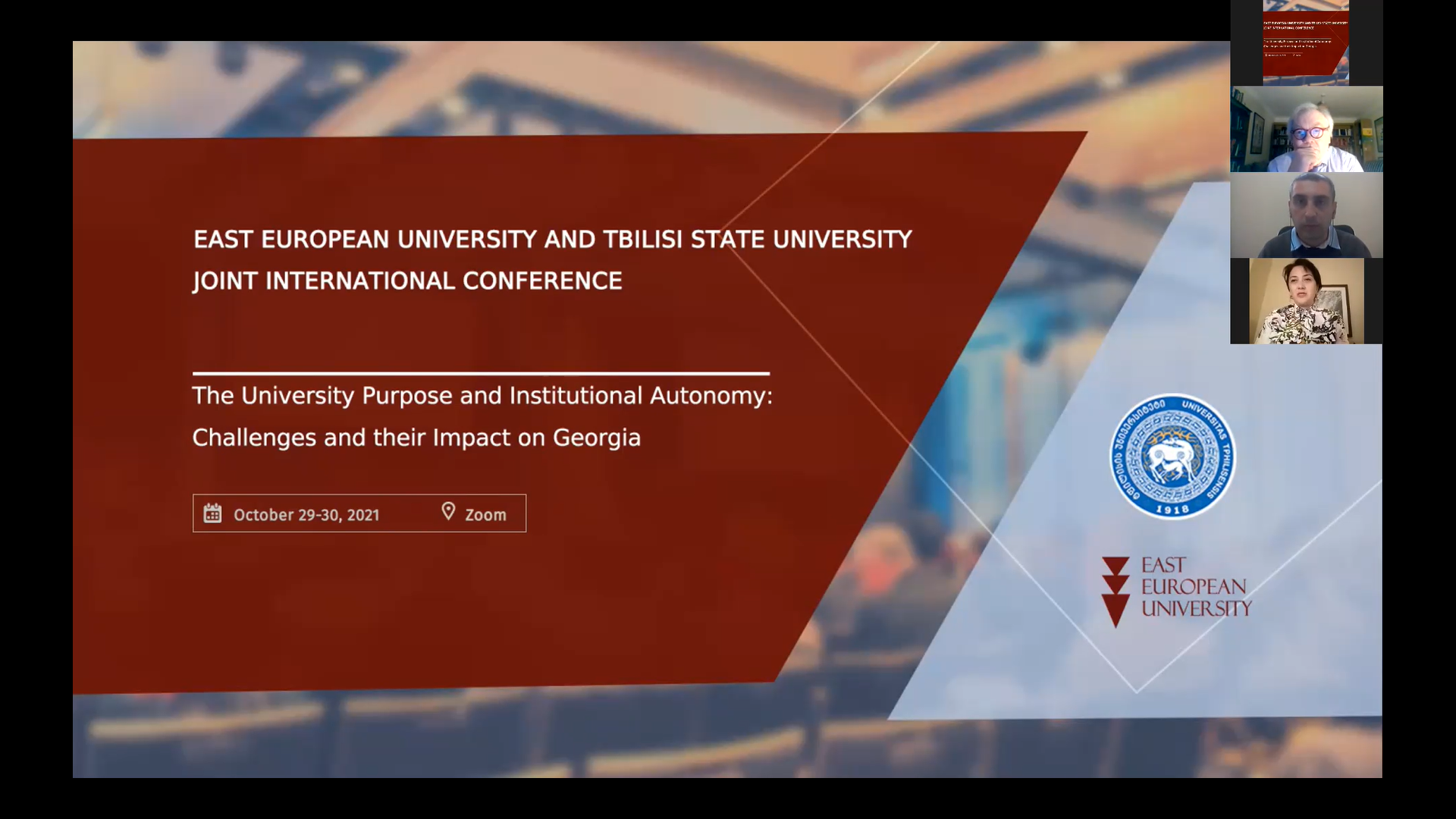Assessing Institutional Efficiency
 The Quality Assurance Service, with the support of the University Administration, has launched a pilot process of evaluating institutional effectiveness with an updated methodology, which includes a holistic approach and the evaluation of various aspects of the institution's activities, systematic data collection, development of indicators and analysis of results.
The Quality Assurance Service, with the support of the University Administration, has launched a pilot process of evaluating institutional effectiveness with an updated methodology, which includes a holistic approach and the evaluation of various aspects of the institution's activities, systematic data collection, development of indicators and analysis of results.
The idea of the project addresses several issues:
- Systematic data collection, analysis, dynamics observation and systematization, which then will save time and human resources while managing processes within the university;
- Evaluation of the university in every direction; developing a system of assessment that covers all areas - teaching, learning, research, services, resources (including financial, material, human, library); contributing to the development of society; and monitoring results;
- Creation of a platform for gathering and analysing information that will collect data and calculate indicators.
The Quality Assurance Service actively uses the analysis of the rankings of world universities to evaluate its own activities and to observe the dynamics of development. Within the framework of this project, the university has developed its own system for evaluating efficiency.
With the wide involvement and cooperation of the University Society, the Quality Assurance Service has determined a list of data (more than 250 units/metrics) that is important for evaluating the effectiveness of all aspects of the University activities. The present data are used at the University as part of various processes, including educational program accreditation, institutional authorization, and global rankings of universities. The data are grouped in different directions, although there are so-called “cross-cutting” directions, such as internationalization, which, although not represented as a separate direction, its constituent components are met in all directions. Evaluation indicators have been developed (more than 40), which include quantitative and qualitative data, they have been assigned a relevant value (specific share) in the assessment, which allows us to evaluate the effectiveness of activities at three levels: educational program, faculty/institute and university.
With the support of the administration, this year the Information Technology Service will develop databases in such a way that it will be possible to automatically obtain the data needed for evaluation without spending extra time and human resources.
The project is innovative in the field of higher education in Georgia.
 The international conference „15th International Technology, Education and Development Conference (INTED 2021)“ was held on March 8-9, 2021. The article: Measuring and Improving Institutional Effectiveness and Establishing Quality Culture at Universities through rigorous data collection and weighted indicators (Case of Georgia, TSU) was presented by the Head of TSU QA Service Irma Grdzelidze and Chief Specialist Tinatin Gabrichidze at the Conference INTED 2021. For more information, please, visit the page.
The international conference „15th International Technology, Education and Development Conference (INTED 2021)“ was held on March 8-9, 2021. The article: Measuring and Improving Institutional Effectiveness and Establishing Quality Culture at Universities through rigorous data collection and weighted indicators (Case of Georgia, TSU) was presented by the Head of TSU QA Service Irma Grdzelidze and Chief Specialist Tinatin Gabrichidze at the Conference INTED 2021. For more information, please, visit the page.
Irma Grdzelidze, Heard of the TSU QA Service, and Tinatin Gabrichidze, Chief Specialist, participated in the joint international conference organized by Tbilisi State University and Eastern European University on October 29-30, 2021 "The University Purpose and Institutional Autonomy: Challenges and Their Impact on Georgia" (see the conference website here), where Irma Grdzelidze presented the following topics: "Preliminary study in institutional autonomy in Georgia", co-authored by Tamar Sanikidze and "The challenges of accountability: How does the external accountability translate into performance measures within the Universities? (Case of TSU)", co-authored by Tinatin Gabrichidze. Irma Grdzelidze also moderated the conference sessions on October 29 (see more information here).
 |
 |
 |
|

 FACULTY OF EXACT AND NATURAL SCIENCES
FACULTY OF EXACT AND NATURAL SCIENCES
 FACULTY OF HUMANITIES
FACULTY OF HUMANITIES
 FACULTY OF SOCIAL AND POLITICAL SCIENCES
FACULTY OF SOCIAL AND POLITICAL SCIENCES
 FACULTY OF PSYCHOLOGY AND EDUCATIONAL SCIENCES
FACULTY OF PSYCHOLOGY AND EDUCATIONAL SCIENCES
 FACULTY OF ECONOMICS AND BUSINESS
FACULTY OF ECONOMICS AND BUSINESS
 FACULTY OF MEDICINE
FACULTY OF MEDICINE
 FACULTY OF LAW
FACULTY OF LAW




